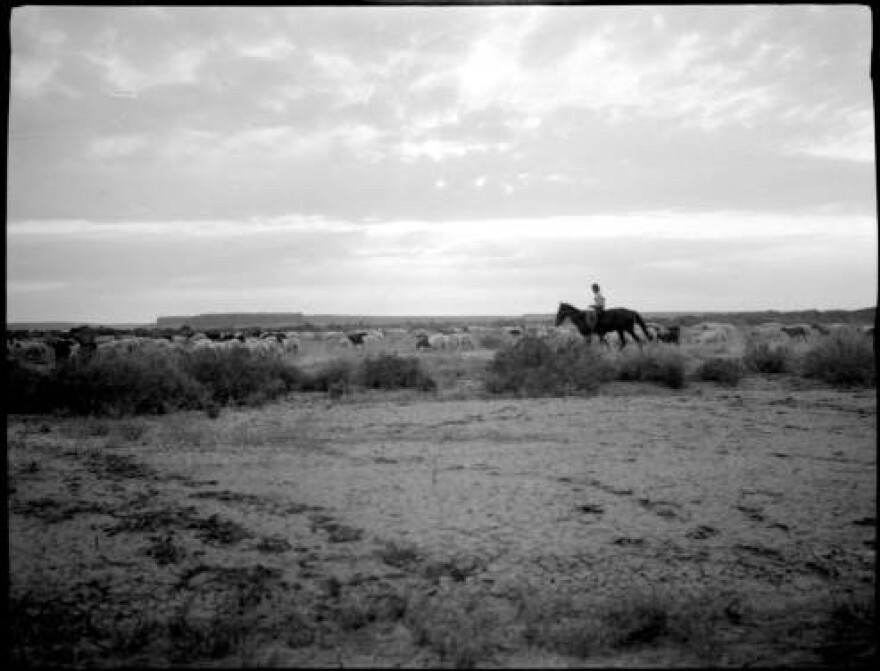To avoid the first frost, Navajo herders move their livestock to lower ground when aspen trees drop their leaves. Others watch the stars and the moon to gauge the timing of seasonal movements. But with changing climate in the Southwest, nature’s signs have become less reliable.
Deon Ben heard about some of these customary grazing practices as he did research for his graduate thesis at Northern Arizona University. He asked how such “traditional ecological knowledge” could interact with western science, and how Native livestock owners might adapt.
Ben interviewed ten ranchers from Round Rock, Arizona, and Tohatchi, New Mexico, where his parents were from. Though he didn’t specifically ask about “climate change,” the people he talked with were certainly aware of weather changes like drought and severe storms. They may not see those changes as long-term, but from their close observations of the land they are aware of them all the same.
A fifth-generation Navajo rancher, Ben appreciates the importance of livestock to his people. Sheep, cattle, and horses are wealth, and they figure importantly in religion and ceremony too. And he knows reducing herd size is a highly sensitive issue because of past stock reduction programs.
Along with sharing oral traditions, Ben wants to suggest solutions – owning herds communally, practicing better range management, and reinstilling spiritual connections, for example.
To his mind, Navajo traditional knowledge “provides the order of how to live your life,” knowledge that could provide a valuable complement to what science tells us.







